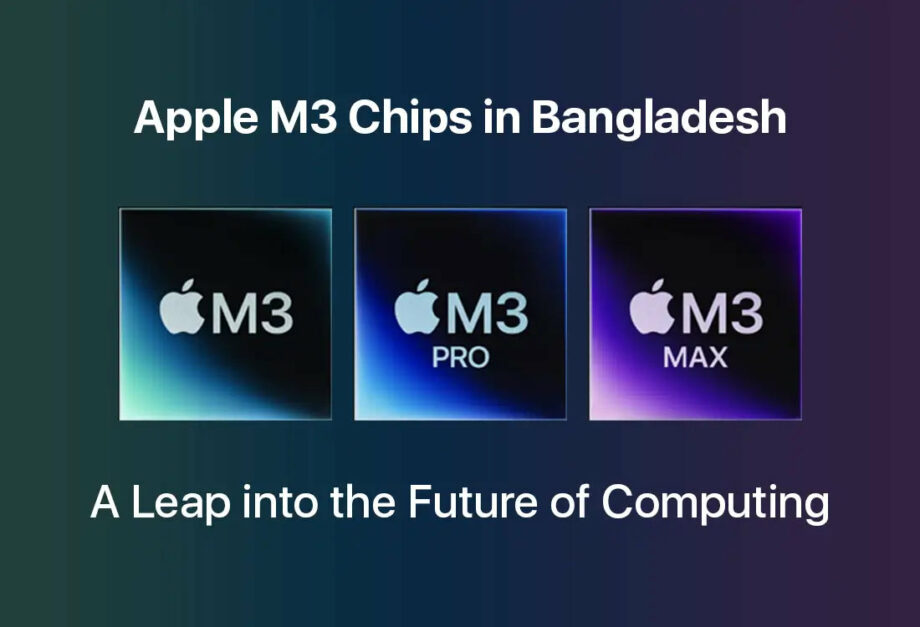Apple M3 Chips in Bangladesh: A Leap into the Future of Computing
Bangladesh’s technology scene is taking a significant stride into the future with the introduction of Apple’s M3 chips, marking a new era in the country’s computing capabilities. This advancement is not just a win for tech enthusiasts but also signals a broader shift in Bangladesh’s approach to technology, embracing cutting-edge innovations that could redefine what’s possible in various sectors like education, business, and creative industries.
Introduction to M3 Chips
The M3 chips are the successors to Apple’s M2 and are built on an even more advanced semiconductor process. With enhanced performance and efficiency metrics, these chips are designed to support higher compute operations without the penalty on power consumption. This makes them ideal for both professional and personal use, offering capabilities that were previously only imaginable in desktop computers to sleek and mobile laptops.
Impact on the Bangladeshi Market
For Bangladesh, a nation rapidly integrating digital technology into every aspect of daily life, the arrival of M3 chips is timely. The country’s growing IT sector, burgeoning startup culture, and digitization initiatives can significantly benefit from the increased processing power and efficiency offered by these new chips.
-
Boost for Software Developers and Creative Professionals: Software developers working on machine learning, AI, and complex simulation programs can now leverage the improved computation capabilities to reduce runtimes and enhance the efficiency of their applications. Similarly, creative professionals such as video editors, 3D animators, and graphic designers will find the enhanced graphics performance transformative, enabling more fluid workflows and real-time rendering of high-resolution graphics.
-
Advantage for Students and Educational Institutions: Educational institutions in Bangladesh can use devices equipped with M3 chips to provide students with the necessary tools to engage in advanced research and development projects. These chips can handle sophisticated educational software and research simulations that are integral to tech education and innovation.
- Empowerment through Mobility: The efficiency of M3 chips means that devices like laptops and tablets with these processors can operate longer on battery life without compromising performance. This is particularly beneficial in Bangladesh where power supply issues can be a constraint, thus offering greater mobility and consistency.
Challenges and Opportunities
While the introduction of M3 chips presents numerous opportunities, there are challenges that need addressing. The primary concern is the cost factor. Apple products, noted for their premium pricing, could be out of reach for a significant portion of the Bangladeshi population. However, this introduces an opportunity for financial institutions to innovate with attractive financing options for consumers and businesses alike.
Additionally, there’s the challenge of integrating such advanced technology into the current infrastructure. Educational and training programs will need to evolve to equip the workforce with skills necessary to maximize the benefits of the M3 chips.
Conclusion
The arrival of Apple’s M3 chips in Bangladesh is much more than a technological update—it’s a pivotal moment that could catapult the nation into a new computing age. As businesses, educational institutions, and professionals adapt to this technology, the potential for growth and innovation expands dramatically.
By embracing these powerful chips, Bangladesh is not just keeping up with global technology trends but is taking a significant leap forward, positioning itself as a future-ready player in the global tech arena. The future of computing in Bangladesh looks promising, powered by the capabilities of the M3 chips and the vision of its people.
